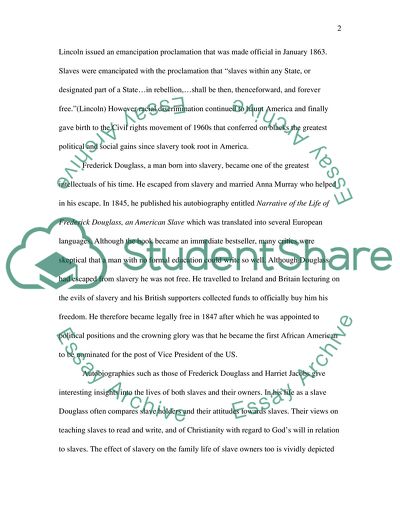Cite this document
(Narrative of the Life of Frederick Douglass, an American Slave Book Report/Review, n.d.)
Narrative of the Life of Frederick Douglass, an American Slave Book Report/Review. Retrieved from https://studentshare.org/biographies/1850335-frederick-douglass-analysis-research-essay
Narrative of the Life of Frederick Douglass, an American Slave Book Report/Review. Retrieved from https://studentshare.org/biographies/1850335-frederick-douglass-analysis-research-essay
(Narrative of the Life of Frederick Douglass, an American Slave Book Report/Review)
Narrative of the Life of Frederick Douglass, an American Slave Book Report/Review. https://studentshare.org/biographies/1850335-frederick-douglass-analysis-research-essay.
Narrative of the Life of Frederick Douglass, an American Slave Book Report/Review. https://studentshare.org/biographies/1850335-frederick-douglass-analysis-research-essay.
“Narrative of the Life of Frederick Douglass, an American Slave Book Report/Review”. https://studentshare.org/biographies/1850335-frederick-douglass-analysis-research-essay.


